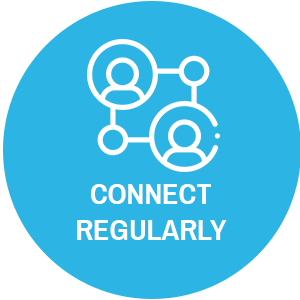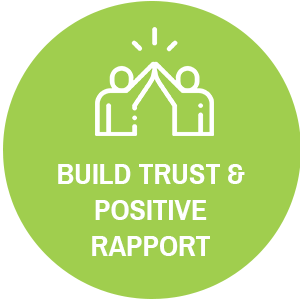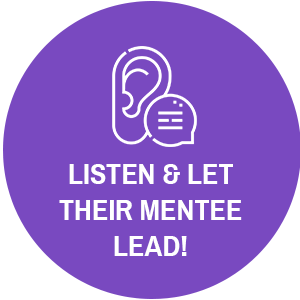VOLUNTEER AS AN E-MENTOR
Life after foster care can feel overwhelming, and finding support isn’t always easy. That’s why we created the Silver Lining Mentoring e-Mentoring program—to provide young adults who have experienced foster care with a mentor who’s there to help them navigate challenges, celebrate wins, and work toward their goals.
With busy lives and different schedules, meeting in person isn’t always possible. Our e-Mentoring program lets mentors and mentees stay connected using virtual means available on their phone or computer. Whether through video calls, voice chats, or messages, mentors are just a few taps away.
What does it take to be a good e-Mentor?
A Silver Lining Mentoring e-Mentor is a supportive adult who builds a consistent, one-on-one relationship with a young adult who has exited foster care to help them achieve their goals. An e-Mentor’s role is to:






What is the Commitment?
- Commit to connecting approximately 4 hours a month for at least one year. This includes: approximately 2 meetings per month with your mentee via video at a mutually convenient time, periodic chat exchanges, and time spent researching information and resources to support your mentee’s goals and interests.
- Engage in a screening and training process that ensures suitability for this volunteer role and equips you with the tools to mentor. The process includes: a screening interview, 2 letters of personal reference, a CORI/SORI background check, a virtual training (includes self-paced and live interactive courses), and a post-training discussion and survey.
- Maintain open and timely communication with the Silver Lining Mentoring staff, including your dedicated Match Support provider.
- Dual-Role Empowerment: Young adults over 21 can volunteer to mentor peers while also receiving mentorship themselves from another volunteer by signing up to be both a mentor and a mentee. This model acknowledges the power of lived experience mentorship and that everyone – regardless of age – has uniques strengths to share and skills to develop.
Youth Voice and Choice in Mentorship
At Silver Lining Mentoring, we prioritize youth voice and choice in the matching process. Many of the young adults we work with express a desire to connect with mentors who share aspects of their identity or lived experiences. Some of the most frequently requested identities include mentors who:
- Identify as male.
- Have personal experience in foster care.
- Are Black, Latino/x, multiracial, or part of another community of color.
- Identify as LGBTQ+ or gender non-binary.
We strive to honor these preferences whenever possible. However, what matters most is the presence of a caring, consistent adult. Regardless of your background or identity, you can make a lasting impact. If you’re committed to showing up and supporting a young person’s journey, we encourage you to apply to be an e-Mentor.


